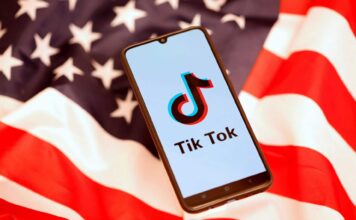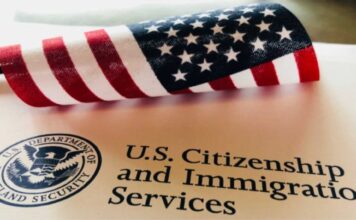Because the COVID-19 pandemic continues to alter our lives in unprecedented methods, increasingly more shoppers search safe, dependable options for making purchases in-person, on-line or over the cellphone. For the tens of millions of Individuals who obtain authorities funds, together with emergency aid funds from the U.S. authorities, one such answer is Authorities Fee Playing cards, or pay as you go Visa debit playing cards.
What Are Financial Influence Fee Playing cards and How Do They Work
Not too long ago, almost Four million pay as you go Visa debit playing cards had been mailed to eligible Individuals as a part of the Coronavirus Assist, Reduction, and Financial Safety Act (CARES Act). These pay as you go Visa debit playing cards are pre-loaded with Financial Influence Fee (EIP) funds and are despatched in a plain envelope from “Cash Community Cardholder Providers.”
EIP playing cards supply a quick, handy, protected approach for Individuals to obtain authorities and emergency aid advantages. These pay as you go playing cards look and work like conventional debit playing cards; nevertheless, these playing cards arrive preloaded with funds and aren’t linked to a checking account.
Utilizing an EIP card is fast, straightforward and safe. It may be used to:
* Pay for purchases on-line, in-person or over the cellphone all over the place Visa is accepted;
* Pay many payments and get money again at taking part retailers;
* Withdraw money from an ATM or a financial institution/credit score union teller
* Switch funds to a private checking account
How To Get Began
Step one while you obtain your EIP card is to activate it by calling at 1-800-240-8100.
Throughout activation, you’ll be requested to validate your id by offering, at minimal, your title, tackle, and final 6-digits of your social safety quantity. Additionally, you will be requested to create a 4-digit PIN required for ATM transactions and automatic help and to listen to your steadiness. On your Account safety, don’t use private info as your PIN. For Playing cards with a couple of titles, solely the first Cardholder (listed first on the Card) might activate the Card.
Preserve your PIN quantity helpful for automated phone help and safe future transactions. For instance, when withdrawing money from an ATM – ideally an in-network, surcharge free ATM that carries the AllPoint® model – enter your 4-digit PIN and choose “Withdraw” from “Checking”.
Discarded or Destroyed Playing cards
In case your EIP card was unintentionally discarded or destroyed, you possibly can name the Buyer Service quantity at 1-800-240-8100 and report it “Misplaced/Stolen”. Your EIP Card will likely be deactivated to stop anybody from utilizing it and a brand new substitute card will likely be ordered. You don’t want to know your card quantity and your first reissued EIP card is free. Any extra reissued playing cards are topic to a substitute charge, so evaluate the Charge Schedule and Cardholder Settlement at EIPCard.com for extra info.
How To Preserve Your Card Protected and Safe
It is very important to know that the IRS, MetaBank, Cash Community, and Visa, like different monetary establishments, don’t contact cardholders immediately requesting their private account info. That stated, cybercriminals and fraudsters are continuously relying on people to be distracted and let their guard down. If profitable, they’ll trick individuals into handing over private or monetary info utilizing a tactic they name phishing.
Listed here are some widespread types of phishing that one might encounter and warning indicators to look out for:
Telephone Name Phishing
* Shoppers ought to look out for a cellphone name from “your bank card firm” or “monetary establishment,” the caller will sometimes establish themselves as some who works within the “Safety and Fraud Division.”
* They’ll observe that your card has been flagged for suspicious transactions and can ask so that you can show that the cardboard is in your possession. You might then be requested to supply the three-digit safety code on the again of your fee card, your pin, or a verification code that was simply despatched to you.
E-mail Phishing
* Be looking out for spelling and grammar errors within the topic line or physique of the e-mail. It additionally could also be a warning signal if the e-mail doesn’t tackle you by title or if the e-mail tackle doesn’t match the group (e.g., irs.web).
* Scammers will even typically embrace deadlines or threaten account suspension so as to add urgency and override your regular sense of warning. If the sender doesn’t present contact info, or if one thing feels suspicious (e.g., asking you to click on a hyperlink) please contact the cardboard issuer at 1-800-240-8100.
Textual content Message Phishing
* Remember if the sender sends a hyperlink somewhat than a cellphone quantity to name. Scammers can also ask that you just log onto your account to confirm a transaction by offering your pin or three-digit CVV code.
Web site Phishing
* It might even be a pink flag if there’s something barely off in regards to the web site or the tackle or if there are misspelled phrases or odd logos.
* Look out for uncommon pop-ups on the location that request you enter private account info. Even be cautious of HTML hyperlinks that don’t match their vacation spot.
* In case you are uncertain a few hyperlink, it’s best to manually enter the total web site URL or tackle into your browser as a substitute of clicking on a hyperlink offered to you.
Social Media Phishing
* Warning indicators embrace good friend requests from somebody you have no idea, or a publish asking you to click on on a hyperlink and supply private info.













